Champions of Change Blog
Giving Latinas a Chance Against Breast Cancer
Posted by on October 4, 2011 at 3:04 PM EDTEd. Note: Champions of Change is a weekly initiative to highlight Americans who are making an impact in their communities and helping our country rise to meet the many challenges of the 21st century.
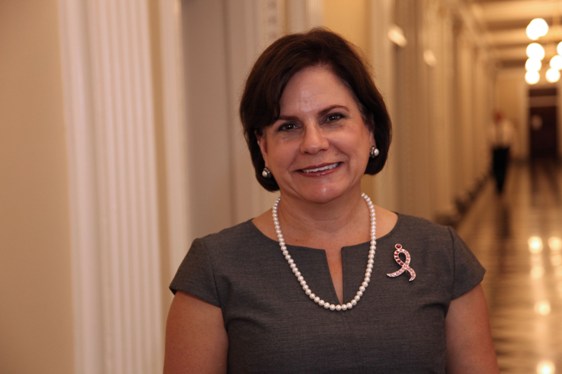 “I don’t have to worry about breast cancer.”
“I don’t have to worry about breast cancer.”I hear that a lot from Latina women, unfortunately. They see statistics on how Latinas don’t get breast cancer nearly as often as black or white women.
They need to know: Breast cancer is the No. 1 Latina cancer killer.
Latinas are 20% more likely to die of breast cancer than white women diagnosed at similar ages and stages. Critical cultural beliefs continue to interfere with Latinas’ approach to cancer screening and early detection. Latinas still greatly fear breast cancer and don’t think there’s anything they can do to prevent it, so they put off screening. Latina moms take care of others first. Few Latinas recognize breast cancer often progresses slowly enough to be detected and treated. And even if Latinas are screened, they are more likely to delay/miss follow-up appointments and start treatment later once cancer is confirmed—leading to worse cancer outcomes.
But Latinas also need to know: Breast cancer doesn’t have to kill.
Prevention is the key, and timely screening, diagnosis, treatment, and follow-up care are critical if Latinas are to survive cancer and sustain a good quality of life.
Learn more about WomenMy Personal Truth
Posted by on October 4, 2011 at 2:22 PM EDTEd. Note: Champions of Change is a weekly initiative to highlight Americans who are making an impact in their communities and helping our country rise to meet the many challenges of the 21st century.
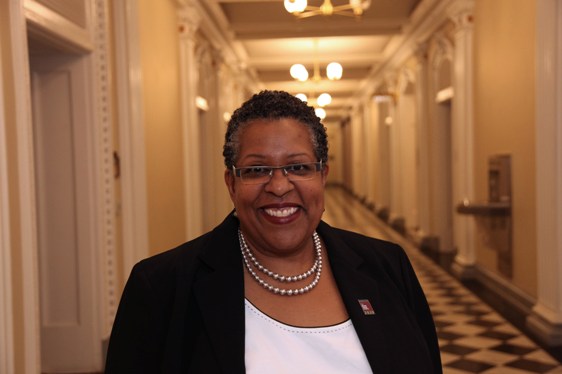
I am angry. Anger is a strong word and an emotion which is often difficult to admit. But, I will admit that I am angry that some women are not living to become mothers, grandmothers or enjoy friendships that last over 50 years. Sadly, I am not alone as young girls are angry that they are growing up without their mothers. Anger. The strength of the word can cause one to take action. It made me step forward and say “What can I do”? How angry do we have to become before we stop women from dying of breast cancer?
I am becoming impatient. With all of the knowledge and so called breakthroughs in science, I wonder why we have not been able to stop breast cancer from developing. And if developed, why can’t we stop it from spreading throughout a women’s body (metastasis)? How can we force the envelope for change? We don’t have time to waste. We need to change the way we have been approaching this for the past 30 years. We need to communicate, collaborate so that we can celebrate.
I am also frustrated because there is so much misinformation being communicated to the public. I urge you to become familiar with the facts because misinformation is hurting women almost as much as breast cancer. Get the Truth. Know the Truth. The National Breast Cancer Coalition can deliver daily information to your inbox every day during the month of October.
I have worked with women who have received a recent diagnosis of breast cancer through the Sisters Informing Sisters program. It is difficult to tell them to remain hopeful and fight when they have personally witnessed someone dying from breast cancer, despite going through treatment. We need to end this disease.
My personal truth. I fully support Breast Cancer Deadline 2020. Are you with me?
Wanda Lucas is a 5 year breast cancer survivor who, through her work at Georgetown University, serves as Lead Survivor Coach on breast cancer research projects.
Learn more about WomenStepping Up to the Challenges Facing Higher Education
Posted by on October 3, 2011 at 3:57 PM EDTEd. Note: Champions of Change is a weekly initiative to highlight Americans who are making an impact in their communities and helping our country rise to meet the many challenges of the 21st century.
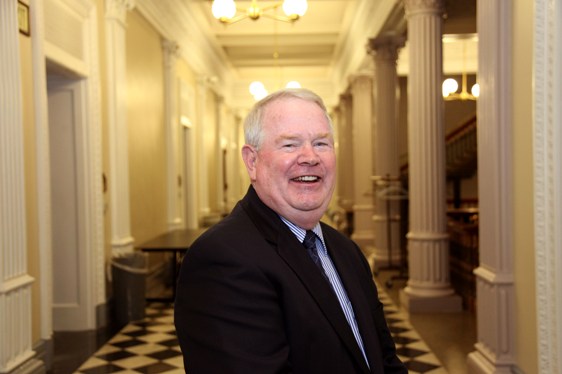
It was a great honor and insightful experience to participate in the Champions of Change Roundtable with administration officials and community and technical college leaders from across our nation at a White House conference. We all agreed our nation faces an urgent challenge. Economic recovery efforts, global competitiveness, and our longer-term economic vitality, are compromised by a growing shortage of skilled workers in the United States. Moreover, social costs continue to rise as the number of unemployed, working poor, and incarcerated individuals continues to rise.
The challenge we face is daunting. It is projected that 60 percent of our working age population will be required to have a high quality degree or credential by 2018. Currently less than 40 percent attain these degrees and credentials. Compounding the challenge is shrinking federal and state budgets to support students and the colleges delivering essential programs and services.
Best practices shared by leaders instilled confidence that community and technical colleges throughout the United States can and will contribute to "winning the future" by stepping up to the challenge. Examples of innovative and entrepreneurial strategies to increase access and completion during these tough economic times were presented with the idea that other colleges will benefit from lessons learned. A common theme was the importance of partnerships with other educational institutions, workforce development agencies, and business and industry.
Learn more about EducationFulfilling a Promise of Success to the Students and the Nation
Posted by on October 3, 2011 at 2:50 PM EDTEd. Note: Champions of Change is a weekly initiative to highlight Americans who are making an impact in their communities and helping our country rise to meet the many challenges of the 21st century.
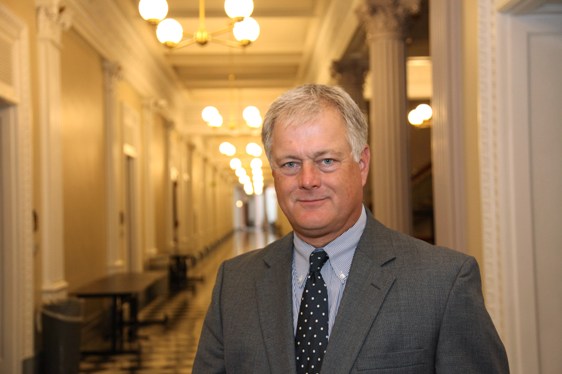
America’s community colleges are uniquely positioned to address the great fault line between those who will succeed in the new economy and those who will languish. That fault line is access to excellent post-secondary education and training. But the colleges, while succeeding in their access agenda for decades, have often failed to achieve the completion and graduation rates that would fulfill their promise to their students and the nation.
Recognizing this fact more than a decade ago, Valencia College, in greater Orlando, Florida, began to bore into the data on student learning and success and fashion systemic solutions to increase both. After a decade of effort, graduation rates for college-ready and developmental students have doubled, gaps between students from different ethnic and socio-economic backgrounds have diminished, and the college is poised to achieve completion rates more typical of selective state universities and more than three times the rates of their peer colleges. The college implemented a much more structured process of engaging students in their transition to college, a program known as LifeMap that is being emulated at many other colleges across the country.
Learn more about EducationLeading the Charge in Creating Higher Education Access Pathways
Posted by on October 3, 2011 at 2:10 PM EDTEd. Note: Champions of Change is a weekly initiative to highlight Americans who are making an impact in their communities and helping our country rise to meet the many challenges of the 21st century.
Although Colorado is regarded as a highly educated state, college attendance rates of native Coloradans, those born and raised in Colorado, are low. For the past decade, elected officials across the political and education spectrum have termed this the “Colorado Paradox.” Nowhere is the education paradox more pronounced than in the southern counties in Colorado, where less than ten percent of high school graduates from the region enroll in college.
In June, 2009, led by the University of Colorado Colorado Springs (UCCS), higher education leaders from all ten public colleges and universities in southern Colorado came together to form the Southern Colorado Higher Education Consortium. Five of the Consortium's institutions are designated Hispanic-serving institutions and one has a special mission to serve Native Americans. Of the ten (10) institutions participating in the consortium, five are community colleges, three are four-year colleges, and two are comprehensive regional universities. Member institutions include: Lamar Community College, Otero Junior College, Pikes Peak Community College, Pueblo Community College, Trinidad State Junior College, Adams State College, Fort Lewis College, Western State College, Colorado State University- Pueblo and the University of Colorado Colorado Springs.
Learn more about EducationPreparing Americans for High Skill, High Wage, and High Demand Occupations
Posted by on September 30, 2011 at 5:55 PM EDTEd. Note: Champions of Change is a weekly initiative to highlight Americans who are making an impact in their communities and helping our country rise to meet the many challenges of the 21st century.
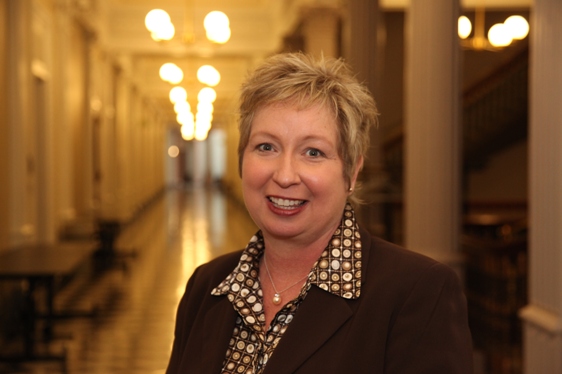
The Tennessee Technology Centers are “Champions of Change” for education. Providing technical education in most states is done through the community colleges. However, in Tennessee, the functions are split between community colleges and technology centers. The 27 Tennessee Technology Centers offer specialized one to two year certifications in high skills, high wage, and high demand occupations. Tennessee’s separate system has been highlighted as one of the most successful educational models in the nation.
Our model prepares Tennesseans for a variety of jobs and enables our students to enter the workplace with prepared skills that employers need. The approach is unique and the results are outstanding with statewide completion rates at 70% and above and placement rates at 80% and above. The Centers have maintained these high rates for years and exceed those of similar institutions.
The model includes four main areas:
Learn more about Education
- &lsaquo previous
- …
- 154
- 155
- 156
- 157
- 158
- 159
- 160
- 161
- 162
- …
- next &rsaquo
White House Blogs
- The White House Blog
- Middle Class Task Force
- Council of Economic Advisers
- Council on Environmental Quality
- Council on Women and Girls
- Office of Intergovernmental Affairs
- Office of Management and Budget
- Office of Public Engagement
- Office of Science & Tech Policy
- Office of Urban Affairs
- Open Government
- Faith and Neighborhood Partnerships
- Social Innovation and Civic Participation
- US Trade Representative
- Office National Drug Control Policy
categories
- AIDS Policy
- Alaska
- Blueprint for an America Built to Last
- Budget
- Civil Rights
- Defense
- Disabilities
- Economy
- Education
- Energy and Environment
- Equal Pay
- Ethics
- Faith Based
- Fiscal Responsibility
- Foreign Policy
- Grab Bag
- Health Care
- Homeland Security
- Immigration
- Innovation Fellows
- Inside the White House
- Middle Class Security
- Open Government
- Poverty
- Rural
- Seniors and Social Security
- Service
- Social Innovation
- State of the Union
- Taxes
- Technology
- Urban Policy
- Veterans
- Violence Prevention
- White House Internships
- Women
- Working Families
- Additional Issues

